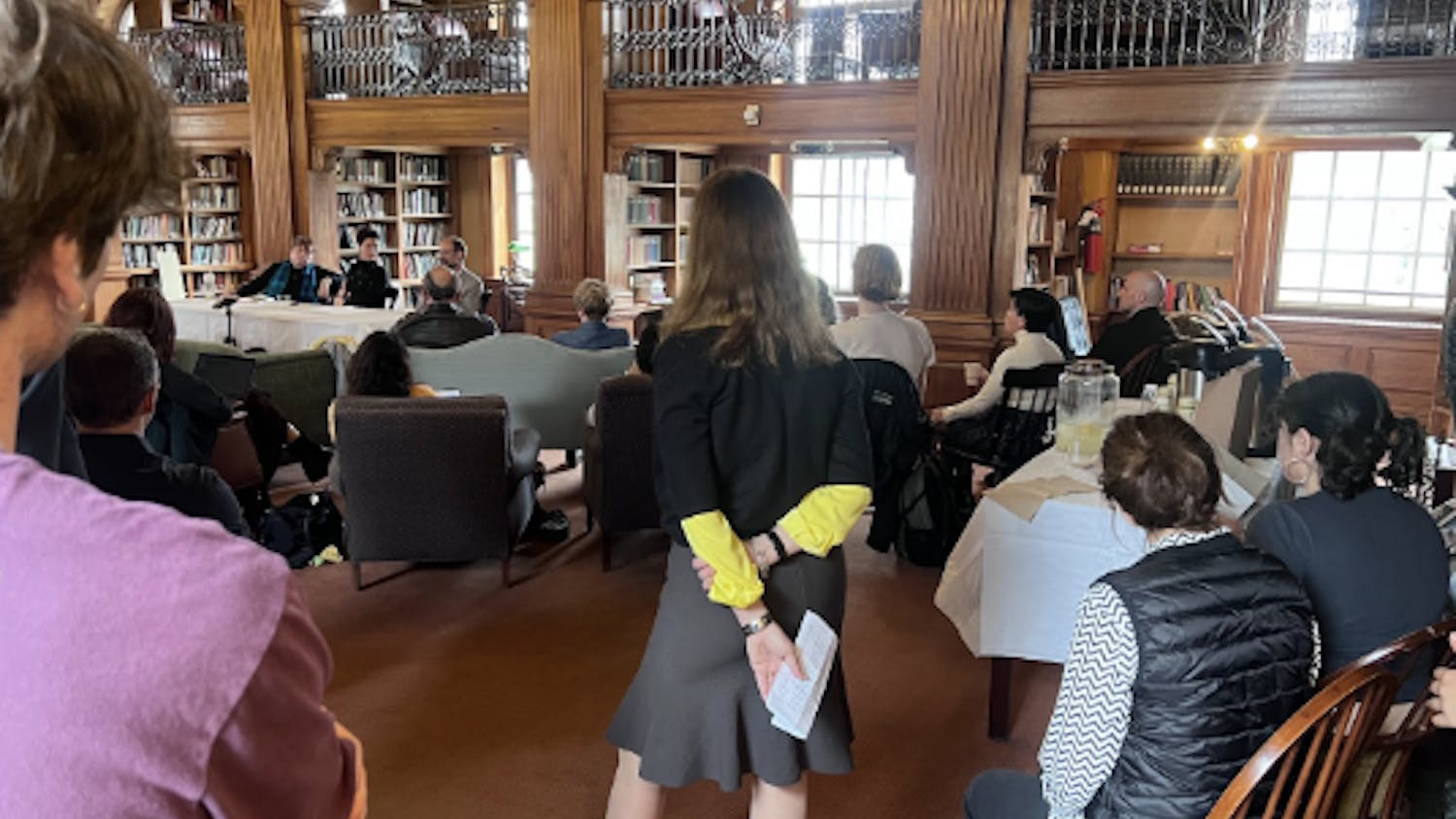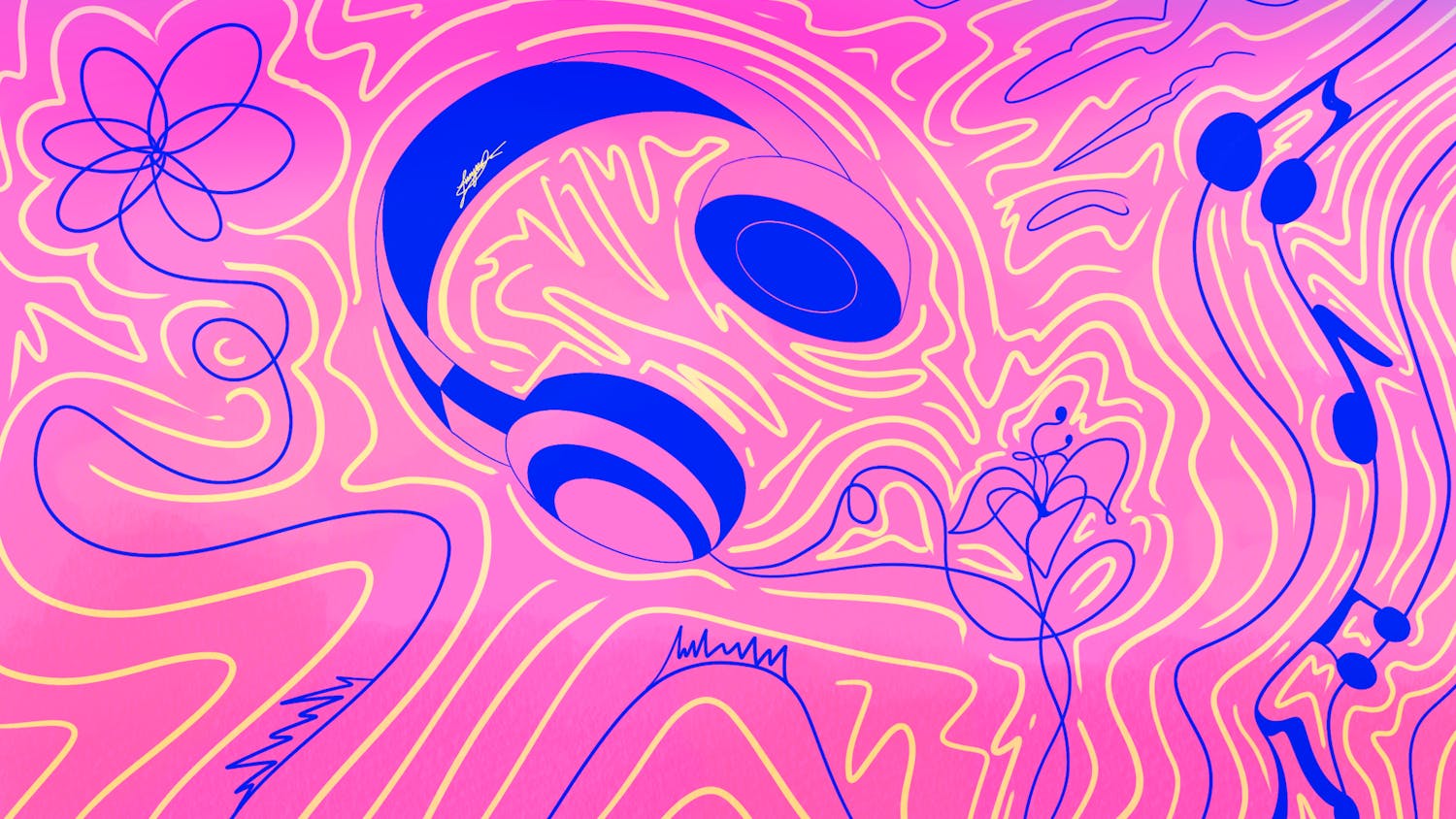By John Kim
The Dartmouth Senior Staff
During my whiny high school years, my friends would listen to Nirvana, Smashing Pumpkins and the like whenever they got upset, using that music as an outlet for their anger (My simpler friends would pump up Dashboard Confessional, which I guess achieved the same effect, if to a somewhat stupider degree.). However, I was an especially whiny teenager, and I thus followed another routine. During my more intense moments of self-loathing, I would put Sarah McLachlan in the CD player, sit in my chair and simply zone out as Sarah's heavenly voice floated through the air.
Some might argue that I was being counterproductive by subjecting myself to McLachlan, the siren of suicide, when I was already depressed. Yet as pathetic as it may sound, I took comfort in feeling as sad as possible without having to concern myself with rationality or perspective. McLachlan's music was cathartic and shook my very emotional foundation, which lay hidden to the rest of the world.
Why bring up McLachlan's name in a review about Aimee Mann? Simply put, the two paralleled my growth as a person. I still listen to McLachlan often, but lately, it is Aimee Mann's music that I find more resonant. Mann is more thoughtful and a hell of a lot less dramatic than McLachlan, yet ultimately, the same problems afflict them both. For all the "maturity" I might have gained, there are certain aspects of life that transform me into that whiny teenager of yesteryear. And I have Mann to guide me through it.
Mann struggled for years to make a name for herself, even having to buy her contract back from a record label that felt that she had no future. Finally, she finally burst into prominence with her work on the "Magnolia" soundtrack, highlighted by the soaring "Save Me," in which she implored someone to save her "from the ranks of the freaks who suspect they could never love anyone."
Her records still don't fly off the shelves. Her last two albums, "Bachelor No. 2" and "Lost in Space" tallied numbers that were respectable but nowhere near the vicinity of such luminaries as Ciara and Joss Stone. Yet those who know her absolutely love her, and Mann's fifth solo release "The Forgotten Arm" was thus a highly anticipated event for her slavish -- if not exactly overwhelming -- following.
Admittedly, Mann isn't known for her versatility. Much like the oeuvre of Norah Jones, there isn't much stylistically to distinguish one Mann album from another. Then again, there's something to be said for consistency; let's leave the experimentation to the likes of Beck and Jack White. Asking Mann to "stretch" would be like asking Ron Artest to stop punching people in the face. Maybe he can pull it off, but he's not happy and we're no longer interested, so what's the point?
"Arm" is different from Mann's previous work in that there is a definite underlying concept. Her liner notes are presented in the style of a novella, and the album follows the story of John and Caroline, a white trash couple whose relationship disintegrates as they go on the road to escape their less-than-idyllic circumstances. In telling the tragic tale, Mann adopts a more straightforward "rock" tone; "Arm" seems livelier than past albums, although such a feat is admittedly not difficult.
Yet concept or no, this is an Aimee Mann album through and through. Once again, she exhibits her deceptively intelligent, wonderfully evocative songwriting; lyrics don't have to be obtuse to be "smart." For example, on the meditative track "Little Bombs," Mann beautifully observes, "Life just kind of empties out / Less a deluge than a drought / Less a giant mushroom cloud than an unexploded shell."
The usual Mann themes -- the allure of salvation through love and the destructive romantic codependence that emerges because of it -- are well represented. In "I Can't Get My Head Around It," she shows the ways in which lovers cling to a failing relationship, lamenting, "I cannot get my head around it baby / Because that's just not the way you make me feel / I want to believe / But baby I'm dry."
Her voice is certainly not as powerful as McLachlan's, but it is tinged with a similar lovely angst that gives the proceedings an emotional punch. Her songs also lack the low-key hooks that have characterized the work of Carole King, but like King, she displays an earnestness that transcends any perceived limitations of her minimalist work.
Mann's erudite style does not lend itself well to producing "singles," and "Arm" is especially devoid of any tracks that stand out among the rest. There are no songs like "It's Not" (from "Lost") or the aforementioned "Save Me" that immediately capture your imagination. Like a true concept album, the songs mesh together in a way so that the sum of the parts really is greater than the whole.
The first few tracks of the album are more upbeat -- relatively speaking -- as John and Caroline still hold out hopeless optimism. Yet even here, Mann foreshadows the inevitable, warning in "The King of the Jailhouse" that "they don't give the answers at the end of the test / So you can't simply stand there and hope for the best."
"Arm" takes a more melancholy turn at "Video," in which John remembers past good times and tries to figure out what went wrong. Three tracks later, the disillusionment is complete. Admitting my weakness for weepy ballads, I see the ballad "That's How I Knew This Story Would Break My Heart" as the work's emotional climax, with John and Caroline finally coming to terms with the collapse of their relationship.
But despite the dark themes in Mann's music, no one argues that she's a misanthrope, and indeed, she offers a cautiously happy ending. In "I Was Thinking I Could Clean Up for Christmas," John confronts the demons that have haunted him for the entirely of the album, and in the final track "Beautiful," the two decide to give it another shot despite knowing that it may turn out just like before, a la "Eternal Sunshine of the Spotless Mind."
Ultimately, while the storytelling concept allows for Mann's most "even" album to date -- remarkable considering that it was recorded in five days -- it also means that she has to forfeit some of the more personal characteristics of her work, resulting in an effort that is not quite as affecting.
But "Arm" is still a worthy addition to Mann's discography. She named the album after a boxing technique in which the opponent wouldn't see the knockout punch coming until it was too late. This has obvious ties to the story of John and Caroline, but it is also an apt metaphor for the album itself. With its low-key nature and absence of standout tracks, the album doesn't make much of an impression at first. Yet it takes on added meaning with each successive listening until finally, without realizing it, it has you within its clutches and you're done for.



